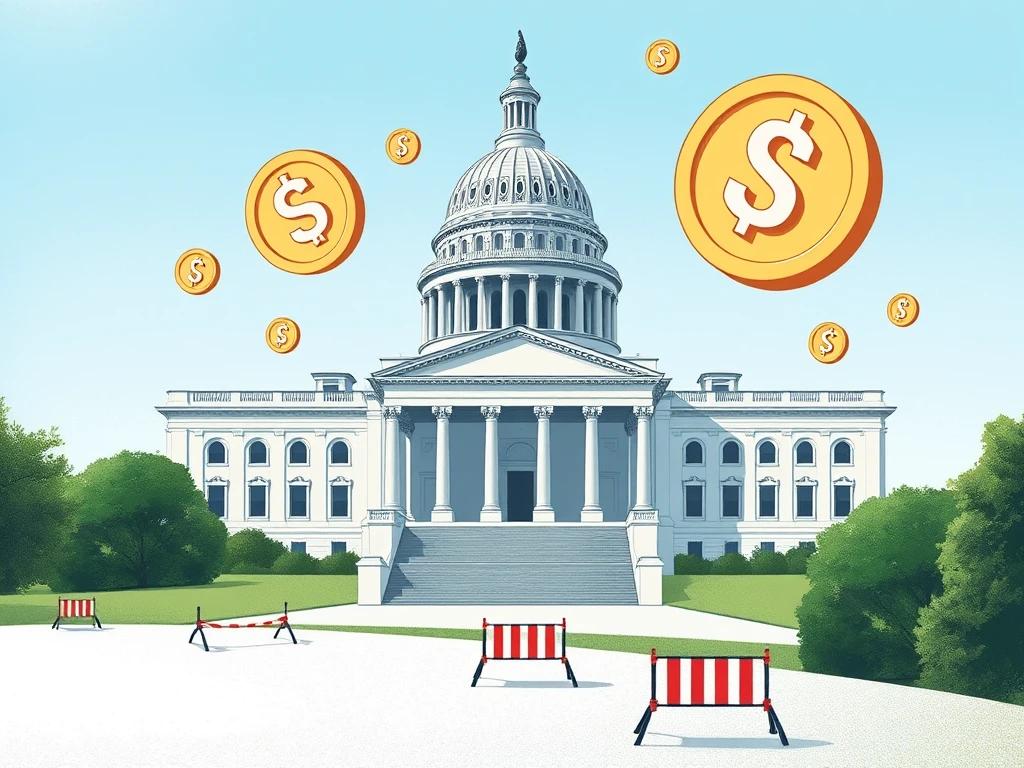Urgent: Stablecoin Bill Faces Senate Hurdles as Crypto Lobby Pushes for Swift Passage

The future of crypto regulation in the United States hangs in the balance as a crucial stablecoin bill approaches debate on the US Senate floor. For anyone following the digital asset space, understanding the legislative path and potential roadblocks is essential.
Why is the Crypto Lobby Pushing for This Stablecoin Bill?
Crypto lobbying groups are actively urging US senators to pass the Guiding and Establishing National Innovation for US Stablecoins (GENIUS) Act without delay. This push comes as the bill, potentially moving to the House as soon as this week, faces the threat of unrelated amendments that could stall its progress. Groups like the Blockchain Association, Crypto Council for Innovation, Digital Chamber, and DeFi Education Fund have expressed readiness to support lawmakers in maintaining “positive momentum.” Their goal is clear: secure targeted and comprehensive crypto regulation specifically for stablecoins.
The GENIUS Act aims to create a clear regulatory framework for stablecoins, which are digital assets pegged to stable values like the US dollar. Proponents argue that clear rules are necessary for market stability, consumer protection, and fostering innovation within the digital economy, potentially cementing US dollar dominance in the digital age.
What Roadblocks Does the GENIUS Act Face in the US Senate?
Despite clearing a procedural vote and regaining support from many Democrats, the GENIUS Act is now encountering significant challenges. The primary threat comes from proposed amendments unrelated to cryptocurrency:
- Credit Card Fee Amendment: Senators Dick Durbin and Roger Marshall want to attach their Credit Card Competition Act (CCCA), which aims to increase competition among payment networks (Visa, Mastercard, American Express) for processing merchant transactions. This measure is controversial and strongly opposed by banks and card networks, creating a political “minefield.” Crypto advocates are working to prevent their bill from being derailed by this “swipe fee” legislation.
- Other Potential Amendments: The list of possible amendments is growing. These include proposals for new disclosure requirements for government officials holding stablecoins, guardrails against potential conflicts of interest (like ties to crypto platforms), bans on foreign ownership of stablecoin issuers (specifically mentioning Chinese ownership), and reforms to existing Bank Secrecy Act and Anti-Money Laundering rules.
The growing list of potential changes and the pushback against measures like the credit card amendment could create procedural hurdles, potentially delaying the final passage of the bill.
What Happens if the Stablecoin Bill is Delayed?
Delays in passing the stablecoin bill could leave the US market operating under regulatory uncertainty. The crypto lobby is keen to avoid this, as clear rules are seen as crucial for attracting investment and fostering growth in the stablecoin sector. Journalist Eleanor Terrett noted that if no agreement is reached on amendments, delays are likely, potentially pushing final passage into the following week.
The debate highlights the complex nature of legislative processes, where even bills with broad support can get entangled with unrelated political battles. The crypto industry watches closely, hoping lawmakers can navigate these challenges and deliver the regulatory clarity they seek for stablecoins through the GENIUS Act.
Summary
The push for a dedicated crypto regulation framework for stablecoins in the US is facing a critical moment in the US Senate. While the GENIUS Act has advanced, its passage is now threatened by unrelated amendments, particularly one concerning credit card fees. The crypto lobby is actively urging senators to prioritize the stablecoin legislation and avoid delays caused by these added measures. The outcome will significantly impact the regulatory landscape for stablecoins in the United States.









